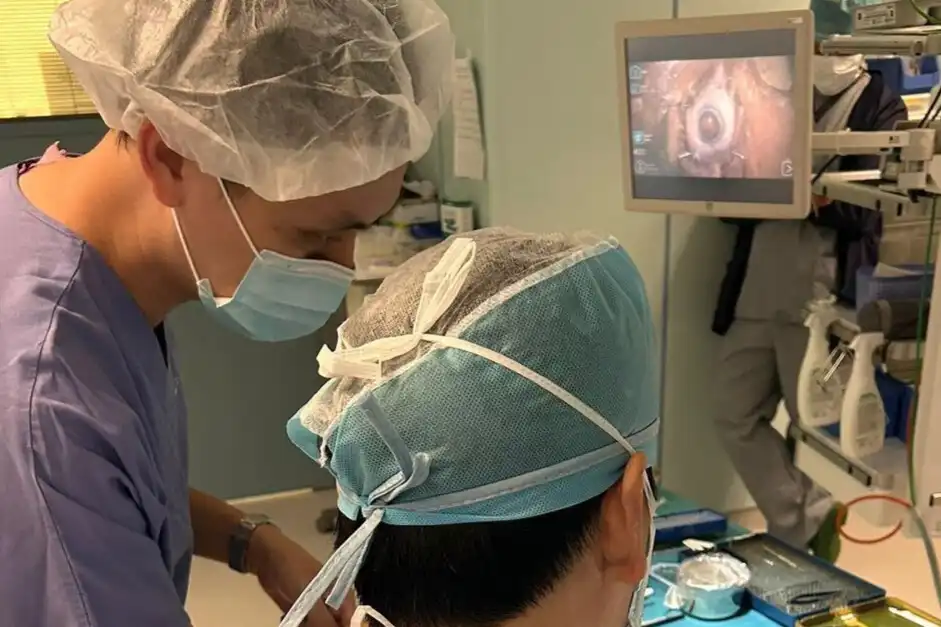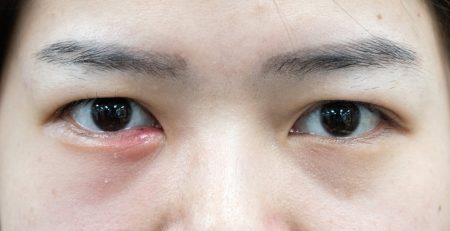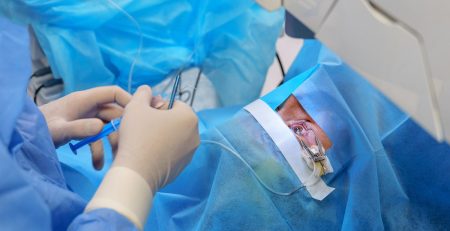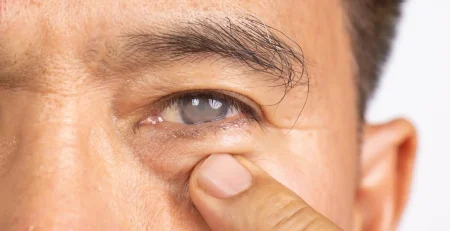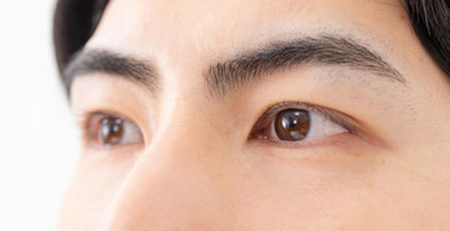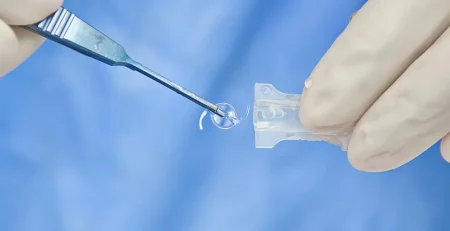Cataract Surgery: Treatment, Recovery & Results
Blurry vision, fading colours, and increasing glare from lights can be more than just an inconvenience; they can be the first signs of cataracts. If you are experiencing these symptoms, understanding your treatment options is the first step towards clearer vision.
At our clinic, Dr Roy prioritises a personalised approach to your eye health, ensuring you receive the highest standard of care tailored to your unique needs. This article will walk you through what you need to know about cataract surgery, from what to expect during the procedure to your recovery and long-term results.
What is Cataract Surgery and When Do You Need It?
Cataract surgery is a common procedure to restore vision affected by cataracts.
Understanding Cataracts: Causes and Symptoms
A cataract is a clouding of the natural lens inside your eye, which is normally clear. For your eye to see, light rays must travel through the lens to the retina. When a cataract forms, the lens becomes opaque, scattering the light and preventing it from focusing properly on the retina.
This results in blurred or misty vision. The most common cause of cataracts is ageing. As we get older, the proteins in our lenses can start to break down and clump together, creating a cloudy area.
Factors that can contribute to cataract formation
- Family history of cataracts
- Medical conditions such as diabetes
- Previous eye injury or surgery
- Long-term use of steroid medications
- Excessive exposure to ultraviolet (UV) radiation from sunlight
- Smoking and excessive alcohol consumption
Common symptoms of cataracts include:
- Cloudy or blurry vision
- Colours appearing faded or yellowed
- Increased sensitivity to light and glare
- Halos appearing around lights
- Poor night vision
- Double vision in one eye
- Frequent changes in your glasses or contact lens prescription
At What Stage Should Cataracts Be Removed?
The decision to have cataract surgery is a personal one, made in consultation with your ophthalmologist. In the early stages, you may not notice any significant changes in your vision. As the cataract progresses, these symptoms will become more apparent and can start to interfere with your daily activities.
There is no definitive “right” time to remove a cataract; it is typically recommended when your vision loss impacts your quality of life. For example, you may find it difficult to read, drive, or see facial expressions clearly.
During your consultation with Dr Roy, a thorough eye examination will be conducted to assess the severity of your cataracts and discuss how they are affecting your lifestyle. This will help determine the most appropriate time for you to consider surgery.
Can You Live Without Cataract Surgery?
It is possible to live without cataract surgery, particularly if your symptoms are mild and do not disrupt your daily life. In the initial stages, you might be able to manage with stronger glasses or by using brighter lighting for reading.
However, as cataracts are a progressive condition, your vision will continue to deteriorate over time. Without surgery, cataracts can eventually lead to significant vision impairment and even blindness. This can have a profound impact on your independence and overall well-being.
Cataract Surgery Recovery Time and What to Expect
The recovery period after cataract surgery is typically short, with many patients noticing an improvement in their vision within a few days.
Recovery Timeline
Your recovery from cataract surgery will be gradual, and it is important to follow all post-operative instructions provided by Dr Roy Tan’s clinic.
- Day 1: Your vision may be blurry or distorted initially. It is common to experience some mild discomfort, grittiness, or watering in the eye. You will be given eye drops to prevent infection and reduce inflammation. Rest is crucial on the first day.
- Days 2-3: Your vision should start to clear. You will attend a follow-up appointment to check the progress of your healing. You can typically resume light activities such as reading and watching television.
- Week 1: You will continue to use your prescribed eye drops. Your vision will continue to improve, and any initial side effects should start to subside.
- Weeks 2-4: Your eye should be feeling more comfortable. You can gradually reintroduce more strenuous activities, but it is important to avoid anything that could put pressure on your eye.
- 1 Month: You will have another follow-up appointment to assess your healing. At this stage, your vision should be stable, and you may be prescribed new glasses if needed.
Post-Surgery Guidelines: Do’s and Don’ts After Cataract Surgery
Following the correct aftercare advice is vital for a smooth recovery and optimal results from your cataract surgery.
Can You Watch TV After Cataract Surgery?
Yes, you can watch television after cataract surgery. In fact, many people find they can enjoy watching TV more clearly than before. In the first few days after your procedure, your eyes may feel a little tired or sensitive to light, so you might prefer to watch for shorter periods.
It is also a good idea to ensure the room is well-lit to avoid eye strain. Listening to your body and resting your eyes when needed is the best approach. If you experience any discomfort, take a break and resume watching when you feel more comfortable.
Physical Activities and Exercise Restrictions
While rest is important in the initial days following your cataract surgery, light physical activity is encouraged to promote circulation. Gentle walking is fine, but you should avoid any strenuous activities or heavy lifting for at least the first two to four weeks.
This includes activities such as running, high-impact aerobics, and weightlifting. You should also avoid bending at the waist, as this can increase pressure in your eye. When you do need to bend, do so at your knees. It is also advisable to avoid swimming pools, hot tubs, and saunas for four to six weeks to minimise the risk of infection.
Eye Care and Medication Guidelines
Proper eye care and adherence to your prescribed medication schedule are essential for a successful recovery. You will be given eye drops to use for several weeks after your cataract surgery. These drops help to prevent infection and control inflammation.
It is important to wash your hands thoroughly before applying your eye drops. You will also be provided with a protective eye shield to wear at night for the first week to prevent you from accidentally rubbing or pressing on your eye while you sleep. Avoid getting soap or water directly in your eye for the first two weeks. When showering or bathing, keep your eyes closed.
Cataract Surgery Risks, Side Effects, and Complications
While cataract surgery is a safe procedure, it is important to be aware of the potential risks, side effects, and complications.
Is Cataract Surgery Painful? Pain Management Guide
Before the surgery begins, you will be given anaesthetic eye drops to numb your eye completely and address any potential pain. You may also be offered a mild sedative to help you relax.
During the surgery, you may feel slight pressure on your eye, but you should not feel any pain. After the surgery, it is normal to experience some mild discomfort, such as a gritty or stinging sensation. This can usually be managed with over-the-counter pain relief medication, such as paracetamol. If you experience severe or persistent pain, you should contact the clinic immediately.
Common Side Effects after Cataract Surgery
After the cataract surgery, it is common to experience some temporary side effects as your eye heals. These can include:
- Blurry or hazy vision: This usually improves within a few days.
- Gritty or sandy feeling: This can last for a few days.
- Watery eye: This is a normal part of the healing process.
- Redness or bloodshot eye: This should resolve within a few days.
- Sensitivity to light: Wearing sunglasses can help with this.
- Halos or glare around lights: This typically subsides over a few weeks.
These side effects are usually mild and temporary. If you have any concerns about your symptoms, do not hesitate to contact our clinic.
Serious Complications and Warning Signs
Serious complications after cataract surgery are rare. However, it is important to be aware of the warning signs so that you can seek prompt medical attention if necessary. These include:
- Severe or worsening pain
- Significant loss of vision
- Increased redness in the eye
- Flashes of light or an increase in floaters in your vision
- A shadow or curtain appearing in your field of vision
- Nausea or vomiting
If you experience any of these symptoms, it is crucial to contact your ophthalmologist immediately, as they could indicate a more serious problem such as an infection, inflammation, or retinal detachment.
Life After Cataract Surgery: Vision Changes and Long-term Results
Following cataract surgery, many people are amazed at the clarity and vibrancy of their new vision.
Will My Eyes Feel Normal After Cataract Surgery?
In the first few days and weeks after your cataract surgery, it is normal for your eye to feel a little different. You may experience some dryness or a foreign body sensation. These feelings are temporary and will gradually disappear as your eye heals.
Using artificial tears can help to alleviate any dryness. Within a few months, your eye should feel completely normal, and you will likely forget you ever had surgery. The long-term result is a clear, comfortable eye with improved vision.
Do I Need Glasses After Cataract Surgery?
Whether or not you will need glasses after cataract surgery depends on the type of intraocular lens (IOL) you choose. IOLs are artificial lenses that replace your natural lens during surgery. There are several types of IOLs available:
- Monofocal IOLs: These lenses are set to provide clear vision at a single distance (usually for distance vision). You will likely still need reading glasses for close-up tasks.
- Multifocal IOLs: These lenses are designed to provide clear vision at multiple distances, reducing your dependence on glasses for both near and far vision.
- Toric IOLs: These lenses are specifically designed for people with astigmatism, correcting the irregular curvature of the cornea to provide clearer vision.
Dr Roy will discuss the different IOL options with you to help you choose the best one for your lifestyle and visual needs.
Can Vision Change Years After Surgery?
For most people, the vision improvement from cataract surgery is permanent. The artificial lens implant is designed to last a lifetime. However, in a small number of cases, a condition called posterior capsule opacification (PCO) can develop.
This is sometimes referred to as a “secondary cataract,” but it is not a recurrence of the original cataract. PCO occurs when the back of the lens capsule, which is left in place to support the IOL, becomes cloudy. This can cause your vision to become blurry again. PCO is easily and quickly treated with a painless laser procedure called a YAG laser capsulotomy.
Cataract Surgery Age Factors and Practical Considerations
Understanding the practical aspects of cataract surgery, including age-related factors and costs, is an important part of the decision-making process.
What is the Average Age for Cataract Surgery?
While cataracts are most common in older adults, there is no specific age at which you should have cataract surgery. The decision is based on the severity of your symptoms and how they are affecting your quality of life, rather than your age alone.
The majority of people who undergo cataract surgery are in their 60s and 70s. However, it is not uncommon for people in their 40s and 50s to develop cataracts, and surgery can also be performed on younger individuals and even children with congenital cataracts.
How Much Does Cataract Surgery Cost in Singapore?
The cost of cataract surgery in Singapore can range from $6,000 to $12,000 or more per eye, depending on several factors, including the type of IOL you choose and the hospital or clinic where the procedure is performed. While the initial cost may seem substantial, it is important to consider the long-term value of the surgery.
Improved vision can enhance your safety, independence, and overall quality of life. It can enable you to continue activities you enjoy, such as driving, reading, and pursuing hobbies. Many patients find that the benefits of clear vision far outweigh the financial investment.
Dr Roy’s can provide you with a detailed breakdown of the costs during your consultation.
Can I Claim Medisave for Cataract Surgery?
Yes, in Singapore, you can use your MediSave account to help cover some costs of your cataract surgery. The amount you can claim from MediSave is subject to certain limits and will depend on the type of procedure and lens you choose. You can typically withdraw up to $3,210 per eye from your own or a family member’s Medisave account.
Can I claim Insurance for Cataract Surgery?
If you have a private or corporate insurance plan, you may also be eligible for coverage although pre-authorisation is often required. It’s important to check with your insurer or clinic to confirm your entitlements, potential out-of-pocket costs, and whether a Letter of Guarantee (LOG) is needed before surgery.
Dr Roy’s team is experienced in handling Medisave and insurance claims, and will be happy to assist you with the necessary paperwork and provide you with detailed information on the claims process.
Book a Cataract & Glaucoma Screening for $88
Don’t wait for symptoms to appear before taking action. Early detection is key to preserving your vision.
At Dr Roy Tan’s clinic, we offer a comprehensive Cataract & Glaucoma Screening for just $88. This screening is designed to assess your eye health thoroughly, identify any early indicators of glaucoma or cataracts, and discuss your personalised options if either condition is detected.

